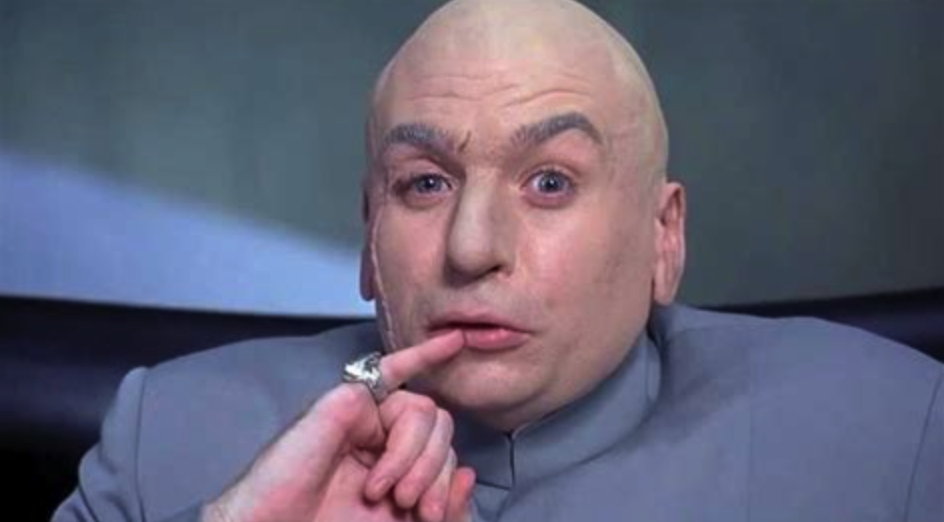
Anti-villains are a type of character we haven’t discussed before. I’d almost venture to say that—while most of you have heard the term “anti-hero”—you might be a tad stumped on the term “anti-villain.”
*does mental gymnastics* *does them too close to curtains* *sets curtains ablaze*
Personally, I love learning about and teaching how to write amazing villains. Why? First of all, the hero (heroic party) is only as good as the opposition. Triumph in the face of ridiculously overwhelming odds?
Yes, please!
Yet, all that really has more to do with plot—stakes, goal, ticking clocks—as opposed to character. Why would we choose an anti-villain over a regular villain? Do we even need a villain? Are pants required?
***Sadly, yes, pants usually required.
Anti-Villain
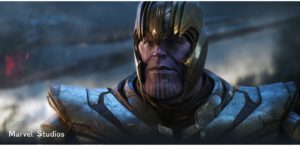
To keep this simple, when we think of villains (in a default sense), it’s easy to conjure a “Black Hat” mustache-twirling caricature. You might be thinking, But Kristen, my villain has so much depth and suffering and, and…”
Hold on! I give extra credit for y’all at the end.
Last post, we talked about how to boil your entire book/series/story idea/TV pitch into ONE sentence.
Why is that important? When we boil our story down, we should be able to clearly see everyone’s GOALS, because goals are what make the critical difference here. Anti-villains can be very easily mistaken for anti-heroes (depending on how jaded one happens to be) and vice versa.
Anti-villains still have what the audience would consider an “evil” goal, but their motivations and WHY they want that goal is where the nuance comes in.
Case in Point:
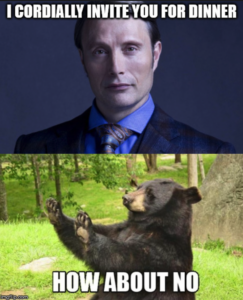
My dear friend and talented thriller author Allison Brennan and I have had a long-standing debate. Allison insists Dr. Hannibal Lecter is a villain, whereas I claim Lecter is, in fact, an anti-hero (cuz he only offs people who kinda deserve it).
Don’t you judge me! Y’all all know you were cheering at the end when he called Clarice to tell here he “was having an old friend for dinner.”
I’ve just keep this long-standing debate going, largely, to tweak with my Lawful Good friend’s sense of right and wrong (I tend to have a Chaotic Neutral streak).
Yet, the truth is I am wrong.
Yes, that IS ACTUALLY NOW IN WRITING.
Hannibal is technically an “anti-villain.”
Why an Anti-Villain?
Why the anti-villain and not just a plain old regular villain? There is nothing wrong with a regular villain. Once we are finished here, however, I don’t know if y’all will ever see a “regular” villain again.
In fact, many of our favorite villains are favorites precisely because they refuse to neatly fit into their category.
As audiences grow increasingly sophisticated, the old tropes of noble good and pure evil are largely unworkable outside of genres like, say high-fantasy or speculative fiction. In speculative fiction, our protagonist might encounter a being from another dimension that is pure evil and okay. That’s fine.
Characters who are evil for the sake of being evil are terrible for genre fiction, but make excellent fodder for comedy and children’s cartoons.
Whenever we add in those additional layers that render our villain more nuanced and less “central-casting,” we could be tiptoeing around anti-villain territory.
Anti-Villains: Bad Deeds, “Good” Reasons
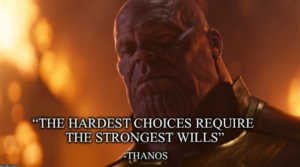
Two key questions differentiate the “anti-hero” from the “anti-villain”:
“What do they WANT?”
“What are they willing to DO to get what they want?”
A quick and convenient example might be Marvel’s villain, Thanos. For those who’ve slept through the last fifteen or so Marvel movies, Thanos is a supervillain self-appointed savior who’s goal is to “save” the planets of the universe…by murdering an “acceptable” percentage of the population.
*insert screeching record*
His contention is that resources are scarce (TRUE) and those who require resources too many (ok, TRUE). Add in his personal experiences with a planet devastated, and perfect anti-villain material.
Sure he WANTS to “save” the universe (TRUE in his mind), and the only way to do this is through randomly un-making billions of sentient beings (eh…NOT TRUE).
While plenty of folks might agree with his assertion that resources are scarce and we need to use wisdom in how we proceed, MOST people are not going to be cool with wholesale genocide.
Ultimately, HOW he is going about his goal is what makes him a villain.
Anti-Hero or Anti-Villain?
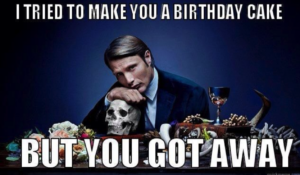
Why I LOVE, LOVE, LOVE anti-heroes and anti-villains is they are so mercurial. They’re slippery and not easily defined, and that makes them fascinating.
In The Silence of the Lambs, Special Agent Clarice Starling is the protagonist (hero), yet one could argue her greatest ALLY was Hannibal. She wouldn’t have had the first clue where to begin even looking for Buffalo Bill without Hannibal’s help.
Here, one could reasonably argue he is an anti-hero. Hannibal is partnering with “good guys” to take down an “even worse bad guy.”
But is he?
Or is he playing 3-D chess and sees the long-game? That all the chaos will ultimately give him the opening to freedom.
Probably that.
Doing GOOD then, ultimately, only serves to FREE him to conceivably resume doing bad things (which he does).
Yet, like I mentioned earlier, most people DID cheer when he was following the head of the asylum at the end. Why would we cheer?
It’s one of those micro-moments where Hannibal is an anti-hero. He’s willing to jeopardize his freedom to a) make sure Clarice is okay and to b) exact punishment on a terrible human being who’s been victimizing/terrorizing/exploiting the most vulnerable in society.
Hannibal is definitely a villain, just he operates by a CODE that many people can respect.
In the second movie, Hannibal would have happily left the Italian detective alone had he followed the rules (rules are VERY important to Hannibal). Instead of upholding his oath as an officer of the law to protect and defend the public, however, the detective goes all mercenary because he wants the bounty that the monster millionaire Mason Vergen put on Hannibal’s head.
Not okay with Hannibal at ALL.
Ant-Villain & Law Abiding Citizen
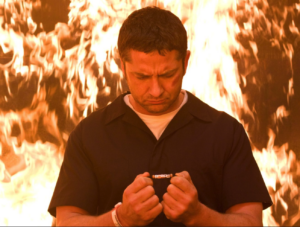
Thanos, Darth Vader, and Hannibal Lecter are definitely among the most memorable and compelling villains on the page AND on the screen. I believe this is due in large part to their depth. They are very layered and have nuance…like actual people (anti-villains).
But what if we don’t want interstellar dictators or even serial killers? What if we just want a…regular person.
So glad y’all asked.
Probably one of my all-time FAVORITE movies is Law Abiding Citizen. When we talk about the different TYPES of anti-villains, the most dangerous is the “Villain in Name Only.” This villain isn’t, per se, evil and he has entirely different reasons for the fight with the protagonist.
His POV is extremely sympathetic and can toss our MC (and the audience) into deep moral crises.
In Law Abiding Citizen, Clyde Shelton is happily enjoying Christmas at home with his family…until he and his loved ones are the victims of a home invasion. The two perpetrators incapacitate Shelton then force him to watch as they brutalize his wife and young daughter before murdering them. Then, they set the house ablaze leaving him for dead.
Nick Rice, the prosecuting attorney, is the “good guy.”
He promises justice for Shelton’s dead loved ones, but then….
After evidence is mishandled, Rice’s case threatens to completely implode. Much to his own chagrin, he can only secure the death penalty for one of the offenders. In order to do this, however, he must agree to a slap-on-the-wrist plea deal for the other perpetrator (one that will set him free in a couple of years).
Ten years later.
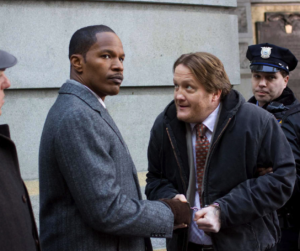
Shelton summarily goes on the war path against a corrupt justice system filled with backroom deals, plea bargains, and other bull$%ittery….
…and can we blame him?
Those home invaders had NO IDEA who they actually messed with, and Rice genuinely wanted to do GOOD. Yet, even he would be hard pressed to say what he got for Shelton’s family was “justice.”
All the way to the END of the MOVIE, I was somewhat rooting for Shelton (technically the villain). And I was not alone!
It’s also hard for the protagonist, Rice, to feel like Shelton is truly “the bad guy.” Not only is he disgusted he had to even offer that horrid plea deal to begin with. He of all people KNOWS the system is jacked up and flawed and imperfect, but—sadly—it’s the best one we have.
Neither man is wholly wrong…and THAT is why this story and those like it, are so darn amazing and memorable.
The Anti-Villain Says More About YOU
…than anything else.
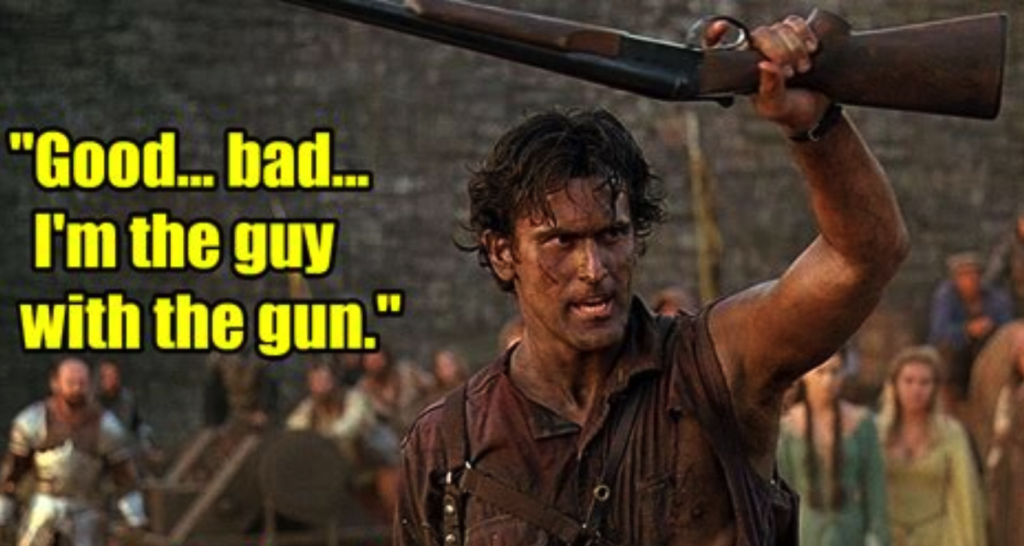
One of the reasons anti-heroes and anti-villains are so easy to confuse is because, first of all, they are complex. How many all bad or all good people do YOU know? So there is that. Yet, they are still villains…or are they?
THAT is the critical question.
Non-fiction, to me, is learning through information. Fiction is still learning, just learning through imagination. This is uniquely true when it comes to appreciating the full spectrum of human emotions and experiences. Anti-villains are fantastic for this.
It is one thing to read some cold distant analysis like from the DSM-V. This diagnostic manual can tell us ALL about psychopathy, sociopathy, megalomania, narcissism, etc.
But fiction lets us LIVE it…from ALL sides.
I took the Clifton Strengths test and one of my core strengths is BELIEF. My sense of right and wrong, just and unjust make me who I am.
So, in Law Abiding Citizen, when Shelton (a former DARPA engineer) decides to burn down all the people responsible for such a disgusting miscarriage of justice?
It is almost impossible for me not to be on his side…at least a little.
When Hannibal took out Dr. Frederick Chilton? Not one fig given. When he kills Mason Vergen? Again, horrible human being and—because Vergen is rich and powerful—Hannibal the only one who CAN take him out.
And I think I should stop there….
Why Do We Love/Hate Characters?
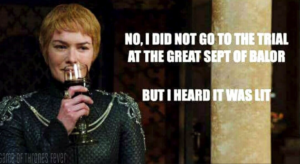
My somewhat dubious moral compass is obvious when we look at characters I love and hate. A therapist would have LOADS of fun hearing my opinions of A Game of Thrones.
Anyway…
Law & Order: S.V.U. I LOVED Elliot Stabler and HATED Olivia Benson, and it is all because of one episode.
A child-killer is toying with the N.Y.P.D. and sealing little kids away with a finite amount of air. Then, the killer leads the police on a merry chase while children slowly suffocate.
During the pursuit, Stabler and Benson KNOW they have the guy, and he’s playing games. It’s nothing they can really prove, more instinct. What is worse is they only have about an hour before yet another child smothers to death.
Elliot does the right thing (in my mind). He waterboards the @$$^&le in his own toilet until he coughs up the location of the final child…along with about a gallon of water and his right kidney.
…and Olivia turns him into Internal Affairs.
Because she is Lawful Good.
To her, the ends do not justify the means. Elliot, conversely, is willing to risk losing his job by betting on his instincts. It is worth his career or even freedom so long as that child lives.
I can relate to that much more (which is why we are happy I became a WRITER 😀 ).
And that is awesome and kind of scary, too. It is unsettling to acknowledge one’s “darker” inclinations, but I feel we are deluding ourselves if we think we are devoid of any. Everyone has a dark side, and (to a degree) there is nothing wrong with that. I feel it is tremendously healthy to know and accept one’s flaws and limitations.
Anti-villains are a great mirror to gaze into for some perspective.
This is why fiction is AMAZING! …and scary
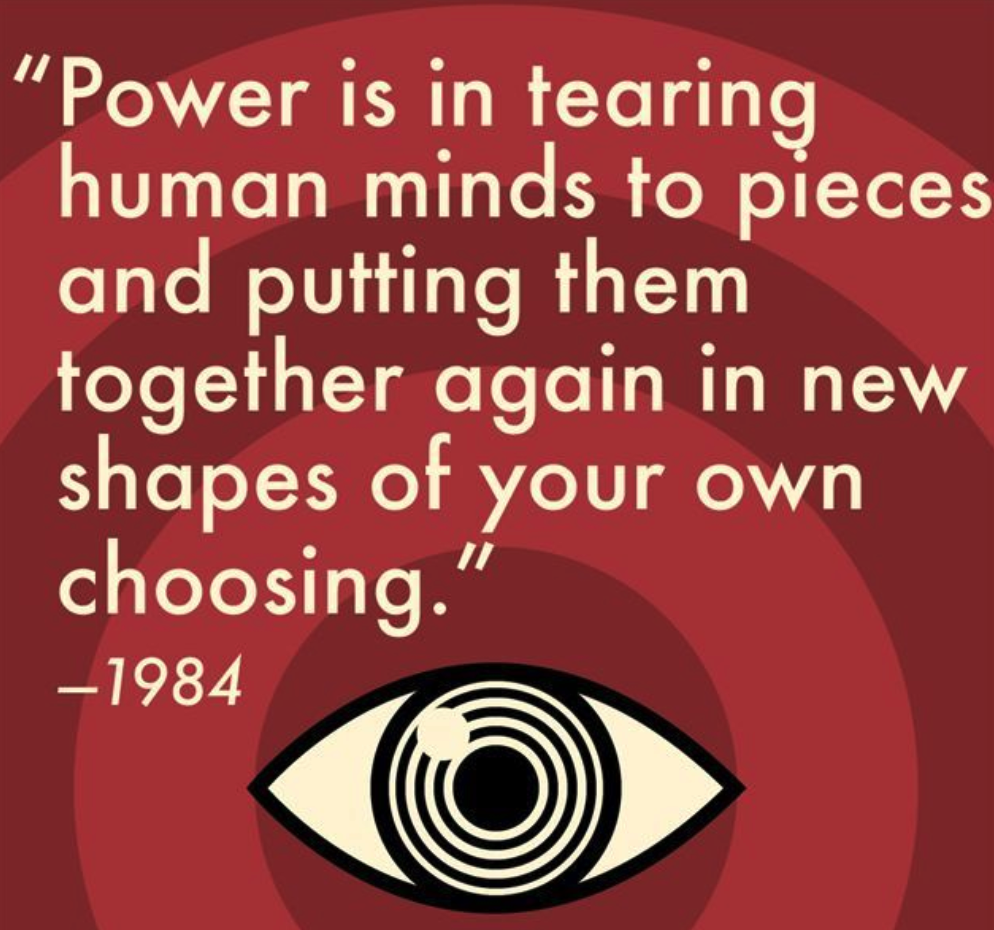
We can live vicariously through other characters and experience the world in a far richer way. Stories allow us a way to face our fears, meet our dark side, consider the world from a different perspective.
Ultimately, whether a character is considered an anti-villain or anti-hero, largely depends on the time period, the culture, and the individual viewer. How we categorize those amorphous characters says way more about us than the author ever intended.
And if you ever meet me and Allison Brennan? Our “debate” makes total sense. We are different people with different experiences and backgrounds and ALL of that colors our world.
***She’s clearly the goody-goody *rolls eyes*
So what do your favorite characters say about YOU?
What are your thoughts on anti-villains?
What do your favorite characters say about you? Have you ever heard of the “anti-villain”? Do you see where we could easily get into a debate whether or not we have an anti-hero or an anti-villain? Any examples of anti-villains you’d like to add from the page or screen?
I LOVE COMMENTS!
To prove it and show my love, for the month of SEPTEMBER, everyone who leaves a comment, I will put your name in a hat.
I actually have landed agents for people who’ve won this contest. Agents like me because I make their lives easier.
***It’s been a short holiday week and I will post the winners next blog. Apologies.
If you comment and link back to my blog on your blog, you get your name in the hat twice.
What do you win?
The unvarnished truth from yours truly (and maybe even time with an agent).
I will pick a winner once a month and it will be a critique of the first 20 pages of your novel, or your query letter, or your synopsis (5 pages or less). People with superlative writing, I (with your permission) have been known to pass you onto an agent.
Anyway, I look forward to reading your comments and your writing!








20 comments
Skip to comment form
I can’t write a good anti-villain. I mean, I can, but in my genre, historical romance, that character can easily outshine the hero, who is already sometimes a rake, anti-hero, himself. Tricky. But I love your blog.
Author
Awww, thanks. I LOVE comments! Yes, we will talk more about the types of anti-villains and even how to write them. You’ll enjoy talking anti-heroes because yes, you are right. The hero is very often a rake/anti-hero.
One of my villains … anti-villains … anti-heroes (its hard to tell) is Lucifer, the prime minister of the galactic empire (“Haven”), until he rebels against his Emperor-father for very relatable reasons. And then does some really BAD things (fractures the empire, leads a rebellion, seizes control of Earth) for GOOD (to him and his rebel followers) reasons. He is a fan favorite, sometimes stealing the show from the hero, who is “lawful good.”
Author
Anti-villains are touchy that way. They can very easily steal the show. Your story sounds fascinating. Thank you for sharing!
Hi!
Your blog is excellent and always gives me lots to think about.
This article was interesting and helpful for one of my current WIPs. Nothing ready for anyone else to read yet.
One of my main characters isn’t bad, really, and she is the main heroine in her fight against the government of her society. She has to make really hard decisions to defy the authorities in order ro make change that improves things.
Would she be considered and anti-hero? She’s definitely not a villain at all – that’s the government in this utopian/dystopian tale set just over 140 years in the future. She’s just a regular person who has to make tough decisions.
I think, after reading this blog post of yours, I understand what an anti-hero and an anti-villiain are. ?
Thanks for this post. ?
Author
I didn’t put it in this post because I was saving it for another. The difference between the anti-villain and anti-hero is very warbly. YOU as the author have to decide which she is. If she is a villain (even an anti-villain) then she is on the “bad team.” If she is a MAIN CHARACTER then only two teams (GOOD and BAD). She can be a villain and an ally, but that is a subplot, not the core story.
IF she is not an ally or a henchman (for the baddies) then you need to choose. If she is the MC, then BY DEFINITION she must be an anti-hero.
Ultimately, even if the audience ADORES your character, if she is an anti-villain…ULTIMATELY the audience has to no longer be rooting for her and your MC-turned-HERO will defeat her plans. (As much as I loved Shelton in “Law Abiding Citizen” he eventually went too far).
So YOU choose if she is the MC (hero) or the Villain (Core Antagonist). Then you craft the goals and such to suit the role.
Because as dreadful as Deadpool is, as much as he does terrible things…he does them to REALLY TERRIBLE PEOPLE (so we can root for him even those his motivations are utterly selfish).
Conversely, as NOBLE as Thanos might believe he is, most people can NEVER really be on the side of wholesale genocide.
I hope this helps you? We can layer characters to be SO DEEP that there is no real way to tell. A great example is Battlestar Galactica. Who was REALLY in the right? Humans or Cylons? No correct answer and that is why it was SO DARN GOOD.
I love this. The villain in my Wolves of Vimar series is a charming character. He has issues with revenge, as he sees it, against his birth land for perceived mistreatment.
Another great post and reading it I instantly thought of a novel by Dennis Koller entitled “The Oath.” In it, a Vietnam veteran kills people he believes betrayed their oaths. He’s opposed by another Vietnam veteran who is now a cop. As you go through the story you start thinking that, just maybe, the murderous vet has some really good reasons for killing off people that – in his mind – didn’t live up to their oaths, That raises an interesting question in my mind: Is the cop who is trying to catch the killer the real villain because he is upholding a corrupt system that allows betrayers to prosper? I’m going to re-read this novel this weekend to see if I can answer that question. Thanks for yet another thoughtful – and funny – post. Cheers.
Author
What a great suggestion. I will have to look up that book!
Hi! A very interesting article. Thank you. I’ve written several books, but only a few ‘villains and murder’ short stories. However, I wrote one modest tale for a comp. (dinner for two prize). A 50 word story:
‘Seen Lionel?’
‘Geoffrey! Long time no see, old boy.
How are you? Seen anything of Lionel?
Those were the days, eh? America, you say?’
‘Haven’t heard in ages. Last time he wrote, he
was off to have dinner with someone he’d just met.
Hannibal Lecter he said his name was, Unusual that!’
Cheers. Joy Lennick
‘
Author
LOL, I LOVE IT! Thanks for sharing.
This is such a great article, Kristen. You point out some great aspects of the lovable and not so lovable villains and ant-villains. I have a question. Have you ever written a story where the main character is a narcissistic, self-centered person who will stop at nothing to get to the top. I’ve been told readers will not want to read about her, so I’ve put the project aside. Do I need a hero to balance the story? Or can I have main character that is so hated?
Author
Oh these characters are WONDERFUL and yes you can have them. The motivation is key and also a level of self-awareness. If you think about Dexter (I know this is an adjacent example) but he understands he is NOT NORMAL and that he is a predator. This coupled with his WHY (get justice from a WORSE baddie) is why we can root for a serial killer.
For what you are suggesting, a FABULOUS template is the book “Luckiest Girl Alive.” It is one of my all-time favorite books and the author WANTED to created the equivalent of a female Tony Soprano and she does it BRILLIANTLY! Often side-kicks (allies) can soften the character as a foil. Think the utterly acerbic Sherlock (BBC Cumberbatch Sherlock) and Watson. Watson becomes the lens where we (and those around him) see him in a new light and go from hating his guts to willing to die to save him. That emotional shift is due to Watson’s intervention.
Thank you for your wonderful response, Kristen!
Author
Any time! It was a great question and I am always honored to see you in the comments.
Great post, Dexter Morgan is a great example. A serial killer who uses his position as a Miami PD forensic expert to track down and murder fellow serial killers.
A great example of anti-villain (IMHO) is Red Redington from The Blacklist.
Author
That IS a great example!
This was a great analysis – I just wrote a fantasy where my villains were victims – my problem is I have a hard time killing anyone off so I try to stick to kids stories but this one evolved into a family oriented with wrong doing eventually made right for most I just need to find a niche –
I have my teenage son reading my book which was originally a dovetail into another writer who is no longer writing. But I was revamping it and it was put on a site that has what I call brutal love stories and I asked the AM if there was an area for family and she said yes – when the character left the prehistoric Scot land I took it into a land that is mystic, time travel, morphing, magic, technology,nature, animal welfare, justice. with a hero that needs growth and that is achieved but it also has a never ending story to it which can have spin offs. My monsters are also victims. I have a tendency to want my characters to be redeemed. The site was taken over by another site but I was sent back to the woman who recruited me and am waiting for a reply.